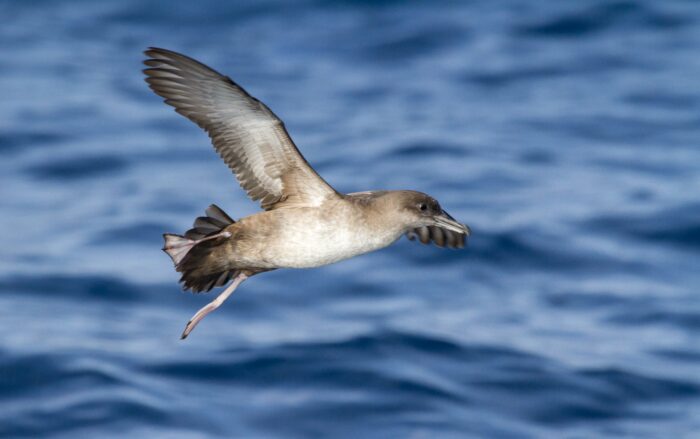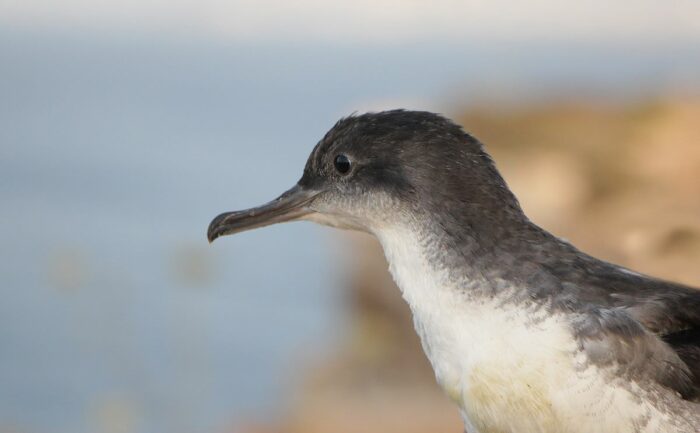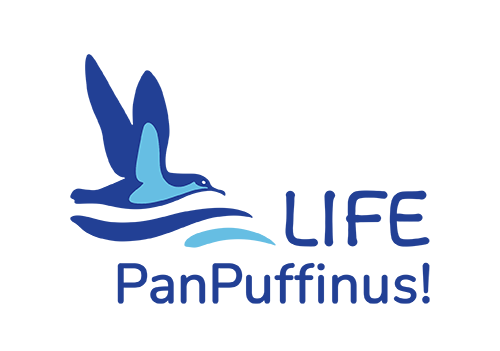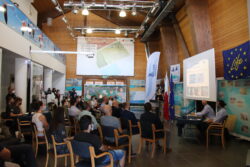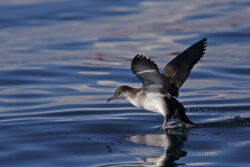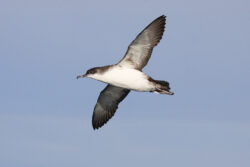BirdLife Malta has today launched another EU-funded scientific study which aims to improve the conservation status of two endemic seabird species in the Mediterranean Basin. The LIFE PanPuffinus! project is a unique transboundary collaboration which will protect two threatened Mediterranean seabirds, the Yelkouan Shearwater and the Balearic Shearwater, through a joint large-scale conservation partnership.
€3.45 million LIFE PanPuffinus! project is co-funded by the EU’s LIFE programme and Malta’s Ministry for Agriculture, Fisheries, Food and Animal Rights
The initiative brings together BirdLife Partners and organisations from five countries to address threats to Yelkouan and Balearic Shearwaters at land and sea
After successfully running three seabird-focused LIFE projects, BirdLife Malta has now joined forces with its BirdLife Partners from another four countries (France, Greece, Portugal and Spain), as well as another two government entities (one in Malta and one in Greece), for a unique Mediterranean-wide collaboration for the conservation of these two seabird species. The project will tackle two major threats that these seabirds encounter throughout their entire life cycle, both terrestrial and marine: predation by invasive mammal species on land, and accidental capture by fishing gear (bycatch) at sea.
The €3.45 million project (LIFE19 NAT/MT/000982), co-funded by the European Union’s LIFE programme and Malta’s Ministry for Agriculture, Fisheries, Food and Animal Rights, will run for five years, until 2025. The EU’s LIFE programme has supported environmental, nature conservation and climate action projects since 1992, and has funded previous BirdLife Malta seabird projects.
The project was launched this morning at BirdLife Malta’s Salina Nature Reserve under the distinguished patronage of Minister for Agriculture, Fisheries, Food and Animal Rights Anton Refalo together with Parliamentary Secretary for European Funds Stefan Zrinzo Azzopardi.
Minister Refalo addressed the launch and described the project as another stepping stone in a series of initiatives the Government is implementing aimed at the protection of the environment and sustainable development. He said that this Ministry’s active support to the project and the co-financing of 40% in national funds strongly confirm the commitment to actions and projects that also aim at the preservation of endangered species and the strengthening of the blue economy. Expressing his confidence that this collaboration with BirdLife Malta will yield successful results, Minister Refalo described LIFE PanPuffinus! as an excellent example of how national and European funds can be combined in order to achieve actions that benefit both the local environment and, in extension, the European environment as a whole, with tangible results that positively impact the everyday lives of the Maltese people.
On the other hand, Parliamentary Secretary Stefan Zrinzo Azzopardi stated that LIFE PanPaffinus! is part of the European LIFE programme, spearheaded by BirdLife Malta together with various other organisations in Europe with an investment of €3.5 million, whereby more than €2.1 million are all funded with european funds. He said that this project is proof that when Member States collaborate and work closely together, better results can be achieved more effectively. Stefan Zrinzo Azzopardi stated that in this case this collaboration will lead to a better environment due to the preservation and conservation of the two endemic Mediterranean seabirds.
In an introduction to the project, LIFE PanPuffinus! Project Manager Manya Russo explained how this EU-funded project’s objectives are to quantify the scale and extent of fisheries bycatch, and mitigate these impacts through the development and implementation of a number of measures. The project will also work to decrease the rate of predation by rats through a thorough predator management and biosecurity plan in Malta and across partner countries. Finally, a key aspect will be the educational, and capacity-building aspect, using this project as a platform to raise awareness on the plight of these seabirds and tangible actions to drive change.
In his opening address, BirdLife Malta CEO Mark Sultana stated that whilst BirdLife Malta has been studying seabirds for over 50 years, since the first EU-LIFE project led by the eNGO in 2006, it has been an incredible journey during which we have helped pelagic seabirds by learning more about them and about what threatens them. He said that birds have become crucial indicators of the well-being of our planet and of humankind. “While BirdLife Malta, despite being an eNGO, is proud to be a net contributor to Malta’s economy, what fulfills us is the fact that we are clear net contributors to the common good of our country with the work we do in our nature reserves, with education in schools and in the field with conservation actions”.
Through this new project, BirdLife Malta and its BirdLife Partners the Hellenic Ornithological Society, HOS (BirdLife Greece); Sociedade Portuguesa para o Estudo das Aves, SPEA (BirdLife Portugal); Sociedad Española de Ornitología, SEO (BirdLife Spain); Ligue pour la Protection des Oiseaux, LPO (BirdLife France) together with Malta’s Department of Fisheries and Aquaculture, and Greece’s Management Body of Cyclades Protected Areas, will share knowledge and investigate further the whereabouts of these elusive birds, their interactions with fisheries, and the perils these sea voyagers face during their lifecycles.
The Balearic Shearwater (Maltese name: Garnija Balearika, Scientific name: Puffinus mauretanicus) is classified as Critically Endangered with Extinction on the International Union for Conservation of Nature (IUCN) Red List of Threatened Species, whilst the Yelkouan Shearwater (Maltese name: Garnija, Scientific name: Puffinus yelkouan) is classified as Vulnerable. Both species are very susceptible to a changing environment and are affected by multiple marine and terrestrial threats which include pollution, the accidental capture of birds in fishing gear known as bycatch, climate change and severe weather. When it comes to breeding seabirds, invasive alien species and human disturbance are the main threats to these seabirds.
Both species spend a significant portion of their life on open seas, rarely visiting land except during the breeding season. Due to this they encounter a diversity of threats. Although both species breed exclusively in the Mediterranean, like many other seabirds they wander through different seas, in particular during the non-breeding season. Balearic Shearwaters visit the Atlantic coast of Portugal, France and southern England whilst large numbers of Yelkouan Shearwaters winter in the Black Sea. That is why collaboration across boundaries is vital, and the involvement of a wide array of stakeholders is necessary to ensure safe seas and colonies for these iconic seabirds.
Throughout the delivery of this five-year project (2021–2025), BirdLife Malta will build on the expertise gained through the previous three EU LIFE-funded projects which studied Malta’s pelagic species, namely the LIFE Yelkouan Shearwater Project (2006–2010), the LIFE+ Malta Seabird Project (2011–2016), and the most recent LIFE Arċipelagu Garnija project (2016–2020) which has just come to an end last September.
Apart from hazards already identified and addressed through these projects such as light and noise pollution, human disturbance including from boat-based tourism, and egg/chick predation by invasive mammal species such as rats, the new project will also address emerging problems such as plastics, which might affect both these seabird species on a great scale in the next decades.
LIFE PanPuffinus! aims to improve the conservation status of these endangered species across the Mediterranean Sea and the Atlantic coast of Portugal through a joint effort between all participating partners to tackle the major common threats they face. But, above all, the project will showcase a unique collaboration of different stakeholders across the Mediterranean for the conservation of these two seabird species.
Read the Maltese version of the press release here.
Additional notes
- Read more about the Balearic Shearwater here.
- Read more about the Yelkouan Shearwater here.
- Read more about the project objectives here.
- Read more about the project partners here.
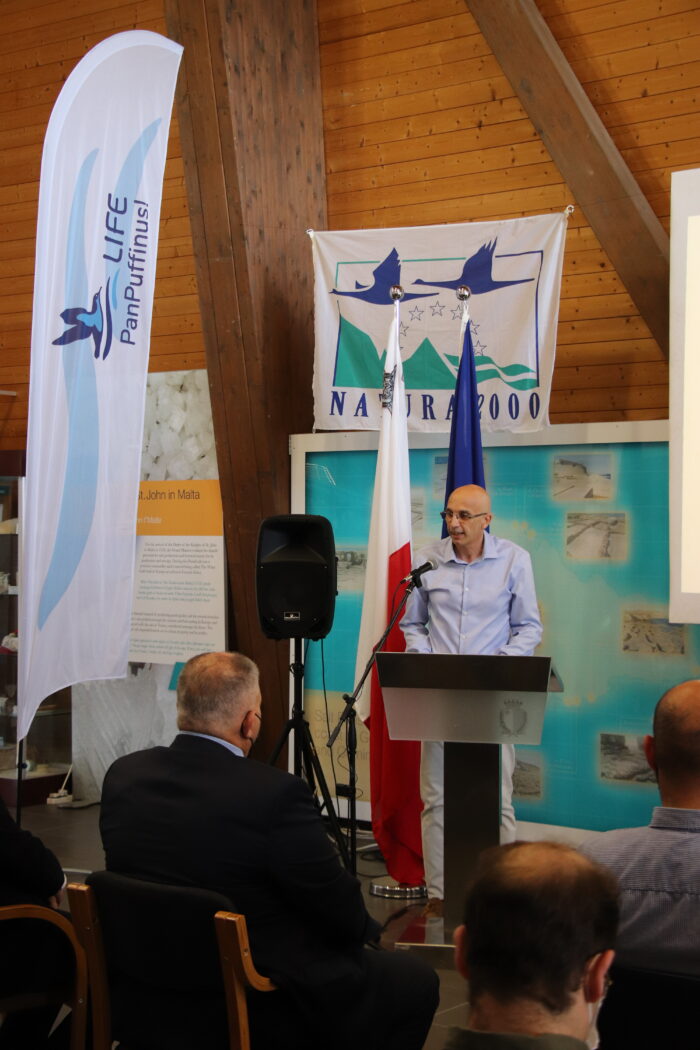
BirdLife Malta CEO Mark Sultana delivering his opening address (Photo by Alexandr Krushlinsky) 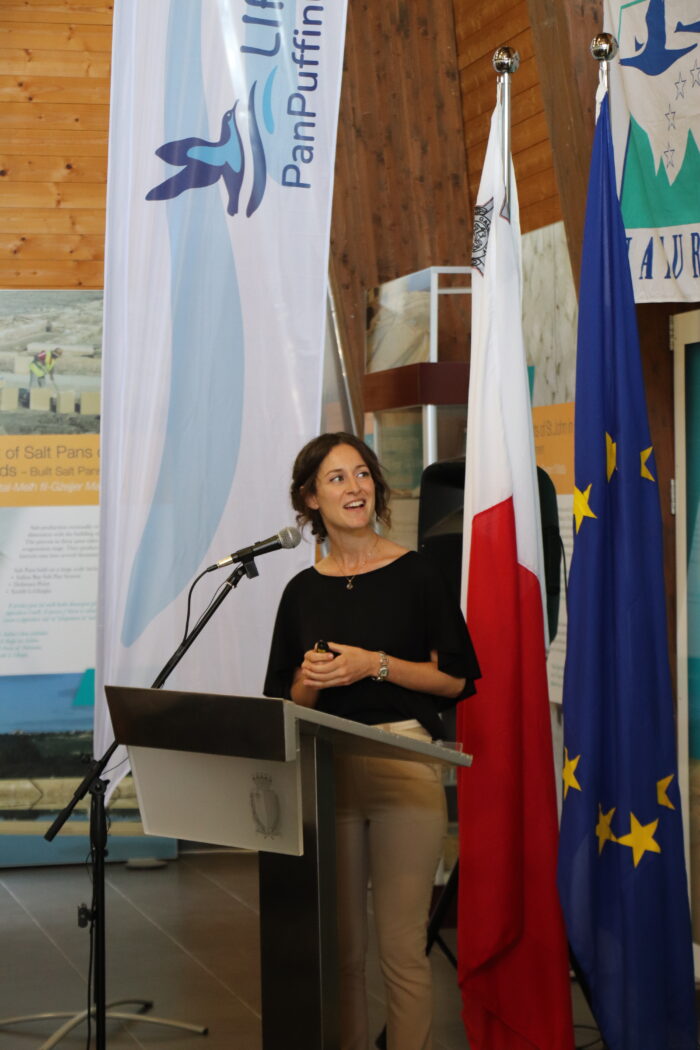
Project Manager Manya Russo speaking during the launch (Photo by Alexandr Krushlinsky) 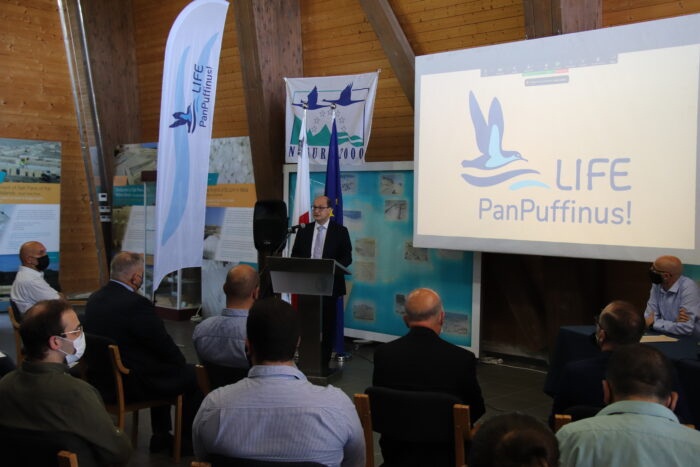
Parliamentary Secretary for European Funds Stefan Zrinzo Azzopardi (Photo by Alexandr Krushlinsky) 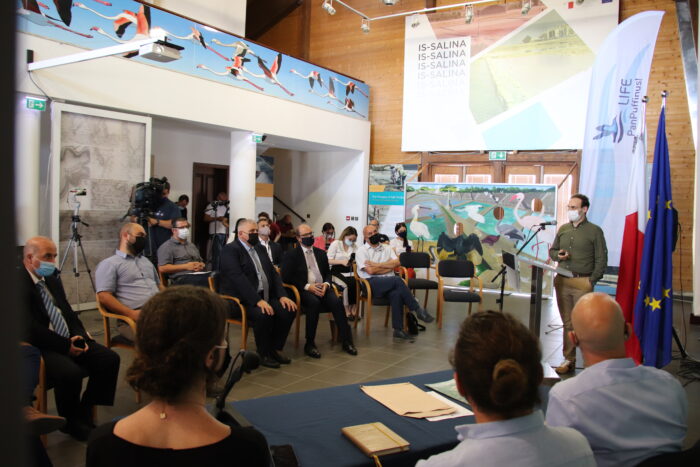
One of the partners delivering a presentation (Photo by Alexandr Krushlinsky) 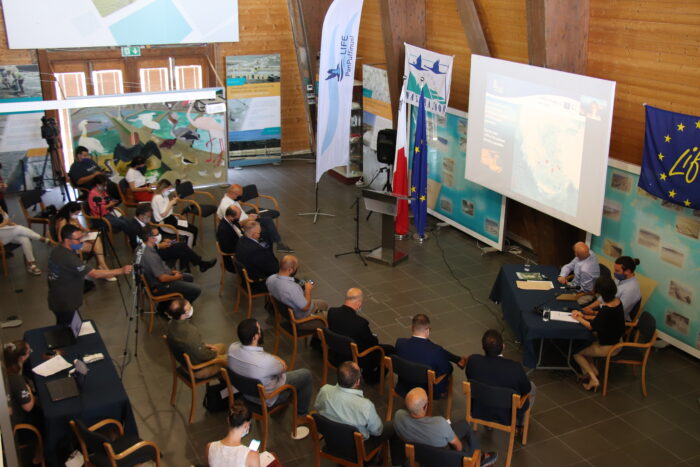
LIFE PanPuffinus! project launch at Salina Nature Reserve (Photo by Alexandr Krushlinsky) 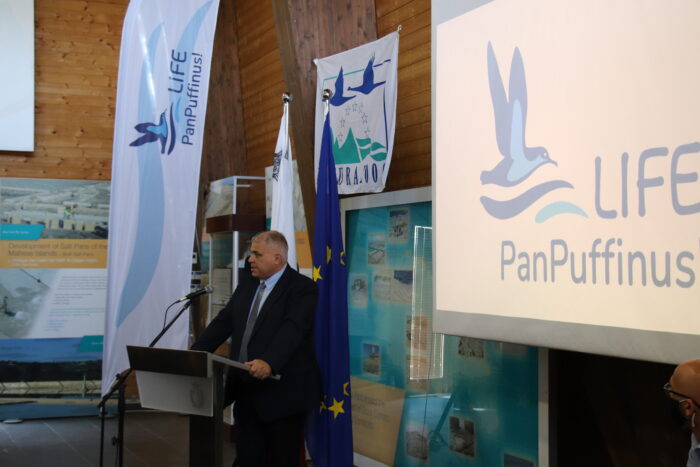
Minister for Agriculture, Fisheries, Food & Animal Rights Anton Refalo closing the proceedings (Photo by Alexandr Krushlinsky)

